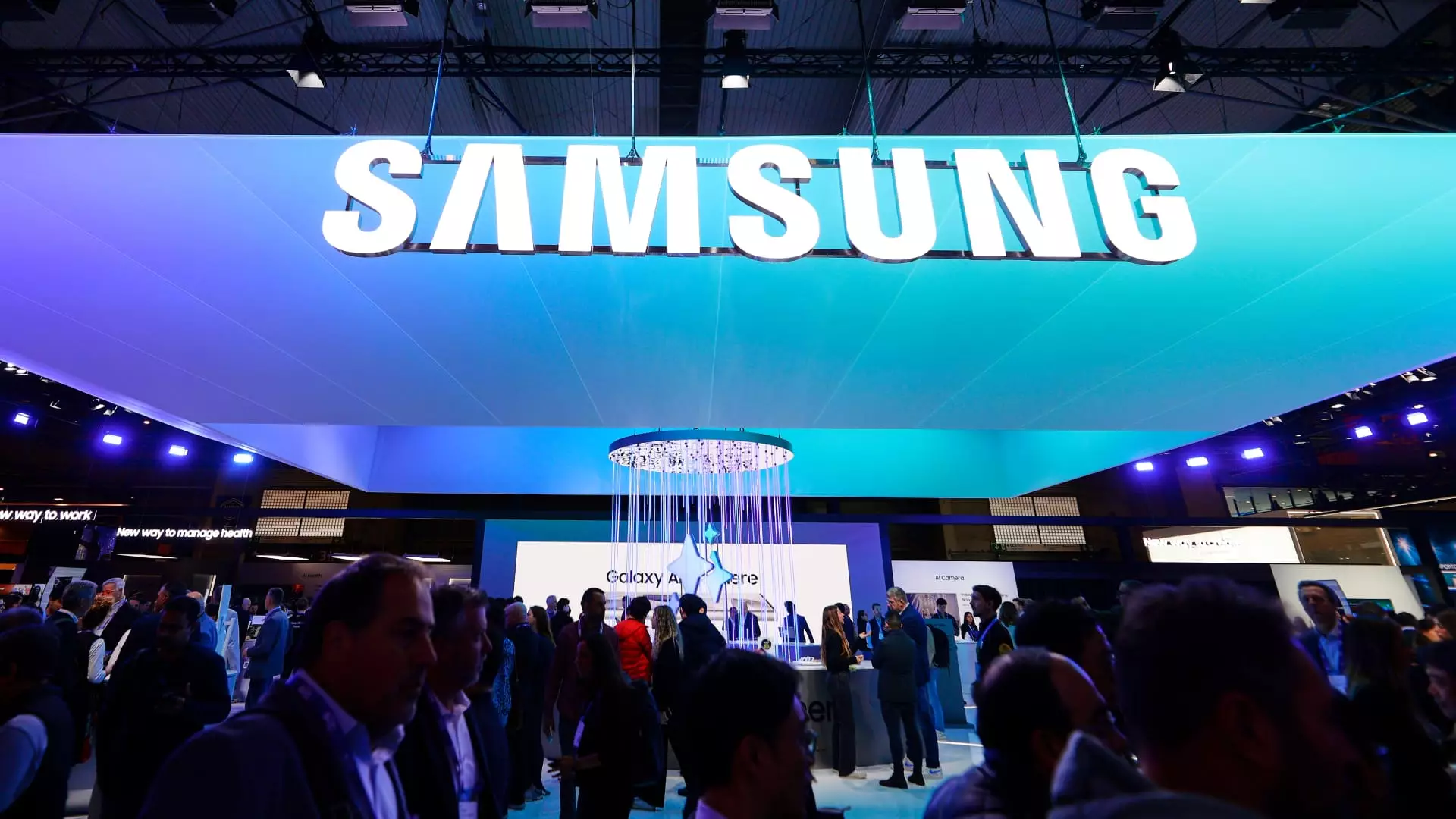Samsung Electronics recently announced its expectations for second-quarter profits, sending its stock price soaring to its highest level since January 2021. The South Korean tech giant reported a projected operating profit of approximately 10.4 trillion won, a staggering increase of 1,452% from the previous year’s figure. This impressive performance exceeded both the company’s own guidance and analysts’ estimates, reflecting the strong demand for artificial intelligence products driving Samsung’s growth.
The surge in profit can be attributed to the rebound in the demand for memory chips, which are essential components in a wide range of consumer electronics such as smartphones and computers. Last year, the industry faced significant challenges due to the global pandemic, leading to losses for Samsung Electronics. However, the recent recovery in memory chip prices, driven by optimism in the artificial intelligence sector, has revitalized the company’s revenue stream.
Samsung’s strategic focus on generative AI technology has also played a crucial role in its second-quarter success. The introduction of innovative features in products like the Galaxy S24 Ultra smartphone has positioned the company as a key player in AI-driven applications. This market expansion has contributed to the stable demand in the mobile sector, further boosting Samsung’s overall performance.
Despite the positive financial results, challenges remain for Samsung in its high-bandwidth memory (HBM) production. The delay in qualifying for Nvidia’s AI processors due to HBM supply issues poses a threat to Samsung’s competitiveness in the market. While the company enjoys a strong market position and high capacity for memory chip production, addressing the HBM production delays will be critical to maintaining its growth trajectory.
Future Outlook and Market Impact
Looking ahead, Samsung Electronics is scheduled to release detailed second-quarter results in the coming weeks, providing further insights into its financial performance. The company’s success in the AI and memory chip sectors will continue to drive its growth in the rapidly evolving tech industry. Additionally, Samsung’s ability to address challenges in HBM production and meet the increasing demand for AI chipsets will be crucial in sustaining its competitive edge in the market.
Samsung Electronics’ exceptional second-quarter profit projections underscore its resilience and adaptability in navigating the dynamic tech landscape. By capitalizing on the booming demand for artificial intelligence and memory chips, the company has positioned itself for continued success in the global market. However, addressing challenges in HBM production and maintaining innovation in generative AI will be key priorities for Samsung as it strives to sustain its growth momentum in the future.


Leave a Reply